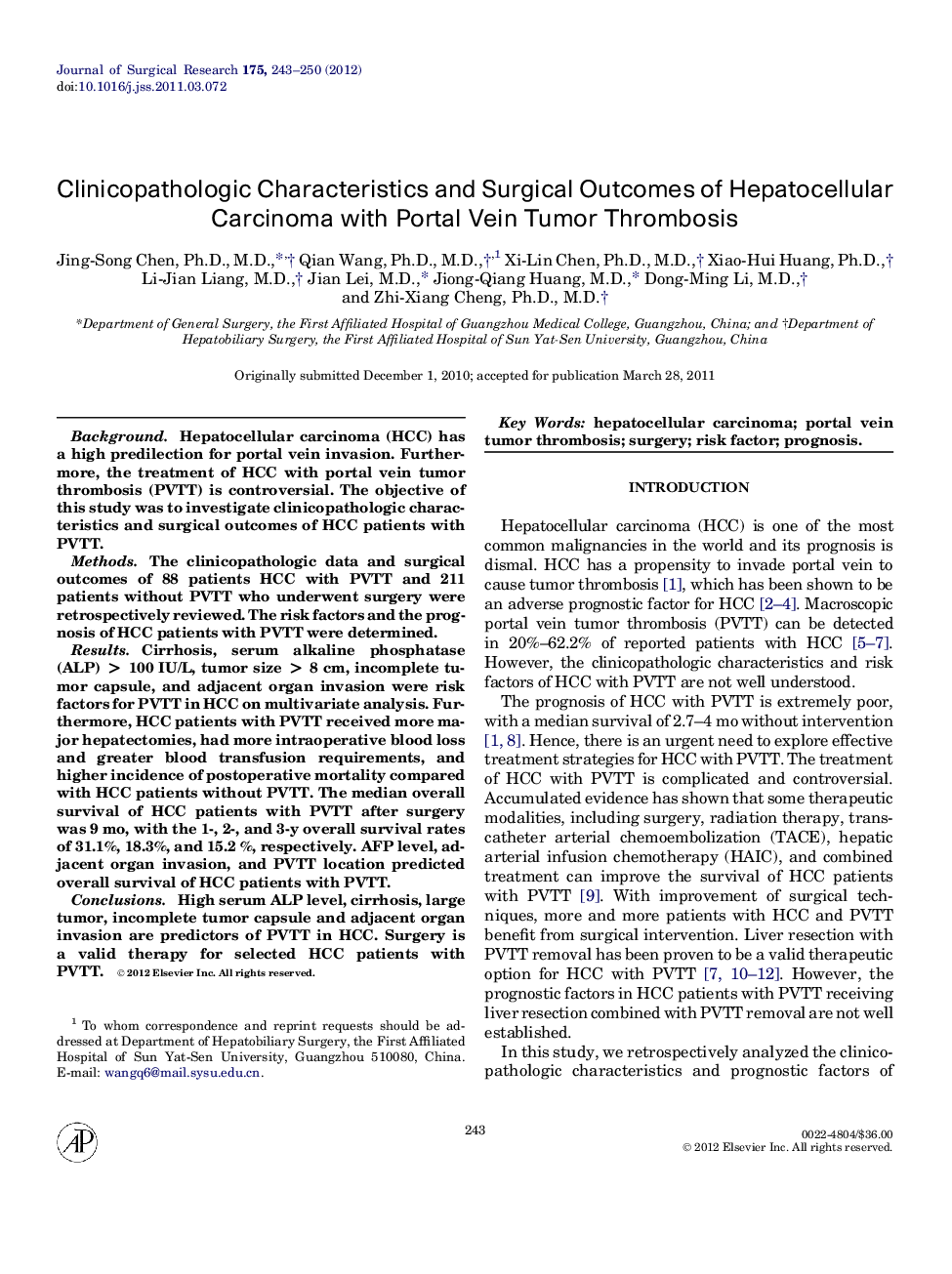| Article ID | Journal | Published Year | Pages | File Type |
|---|---|---|---|---|
| 4301451 | Journal of Surgical Research | 2012 | 8 Pages |
BackgroundHepatocellular carcinoma (HCC) has a high predilection for portal vein invasion. Furthermore, the treatment of HCC with portal vein tumor thrombosis (PVTT) is controversial. The objective of this study was to investigate clinicopathologic characteristics and surgical outcomes of HCC patients with PVTT.MethodsThe clinicopathologic data and surgical outcomes of 88 patients HCC with PVTT and 211 patients without PVTT who underwent surgery were retrospectively reviewed. The risk factors and the prognosis of HCC patients with PVTT were determined.ResultsCirrhosis, serum alkaline phosphatase (ALP) > 100 IU/L, tumor size > 8 cm, incomplete tumor capsule, and adjacent organ invasion were risk factors for PVTT in HCC on multivariate analysis. Furthermore, HCC patients with PVTT received more major hepatectomies, had more intraoperative blood loss and greater blood transfusion requirements, and higher incidence of postoperative mortality compared with HCC patients without PVTT. The median overall survival of HCC patients with PVTT after surgery was 9 mo, with the 1-, 2-, and 3-y overall survival rates of 31.1%, 18.3%, and 15.2 %, respectively. AFP level, adjacent organ invasion, and PVTT location predicted overall survival of HCC patients with PVTT.ConclusionsHigh serum ALP level, cirrhosis, large tumor, incomplete tumor capsule and adjacent organ invasion are predictors of PVTT in HCC. Surgery is a valid therapy for selected HCC patients with PVTT.
